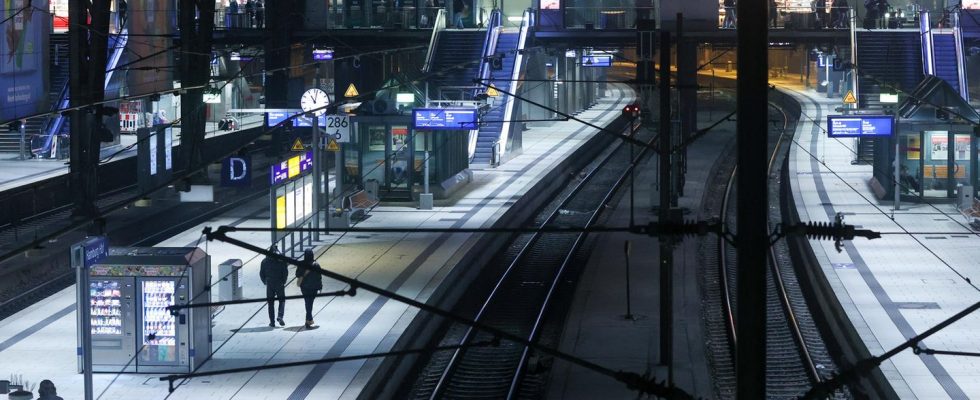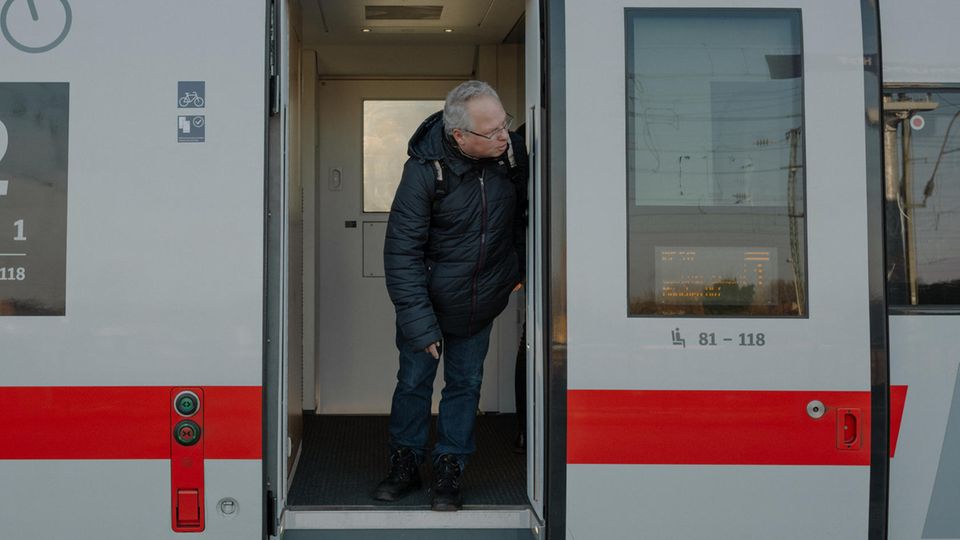Rail strike threatens
How long can the GDL paralyze the country?
Nothing going on: Hamburg Central Station during the GDL strike in December
© Bodo Marks/dpa
The GDL is threatening strikes from January 8th. How many days without Deutsche Bahn do we have to be prepared for?
The festival of reflection is over, and with it the “Christmas peace” – and so rail customers could soon be facing the next industrial dispute. The sticking point in the dispute between Deutsche Bahn and the German Train Drivers’ Union (GDL) remains the demand to shorten the weekly working time from 38 to 35 hours – with full wage compensation. The situation is deadlocked, the GDL is threatening strikes from January 8th.
Theoretically, this would be possible indefinitely, as 97 percent of members were in favor of this in the necessary ballot in December. However, chairman Claus Weselsky emphasizes that they are aware of the responsibility and speaks of a duration of between three and a maximum of five days. Strikes would be announced 48 hours in advance. The GDL’s longest strike to date took place in May 2015. At that time, it brought passenger traffic to a standstill for five days and seven hours. Freight traffic even stood still for eleven hours longer.
“There is no maximum time limit”
In principle, the GDL can actually strike for as long as it wants: “The right to strike is a fundamental right. There is no maximum period of time,” says Stefan Greiner, labor lawyer at the University of Bonn. However, the question of proportionality is legally relevant. The small union can cause great harm to the company and society. Courts have to decide when it gets too big. “This is the case when the rights of third parties are restricted too much. For example, when people no longer come to work or supply chains collapse,” says Greiner.
However, the lawyer considers this scenario to be unlikely: “It helps here that two unions are competing with each other at the railway. While one is on strike, EVG members and non-unionized employees make it possible for the emergency timetable to work.”
EVG stands for Railway and Transport Union – with around 185,000 members, this union has more than four times more members than the GDL.
The railway is taking legal action against the GDL
Incidentally, strikes are also illegal if demands are unlawful. With this argument, the railway tried to stop a GDL strike in court in 2021 – but lost in two instances.
The railway is currently taking legal action against the GDL. The company filed a lawsuit with the Hessian State Labor Court on Tuesday. It is doubtful whether the union is even allowed to negotiate collective agreements. DB human resources director Martin Seiler accuses the GDL of acting as an employer and a union at the same time by operating a temporary employment agency. According to the railway, this means that tariff eligibility is forfeited.
However, a decision is likely to take time and the lawsuit will have little impact on the currently announced strikes.



